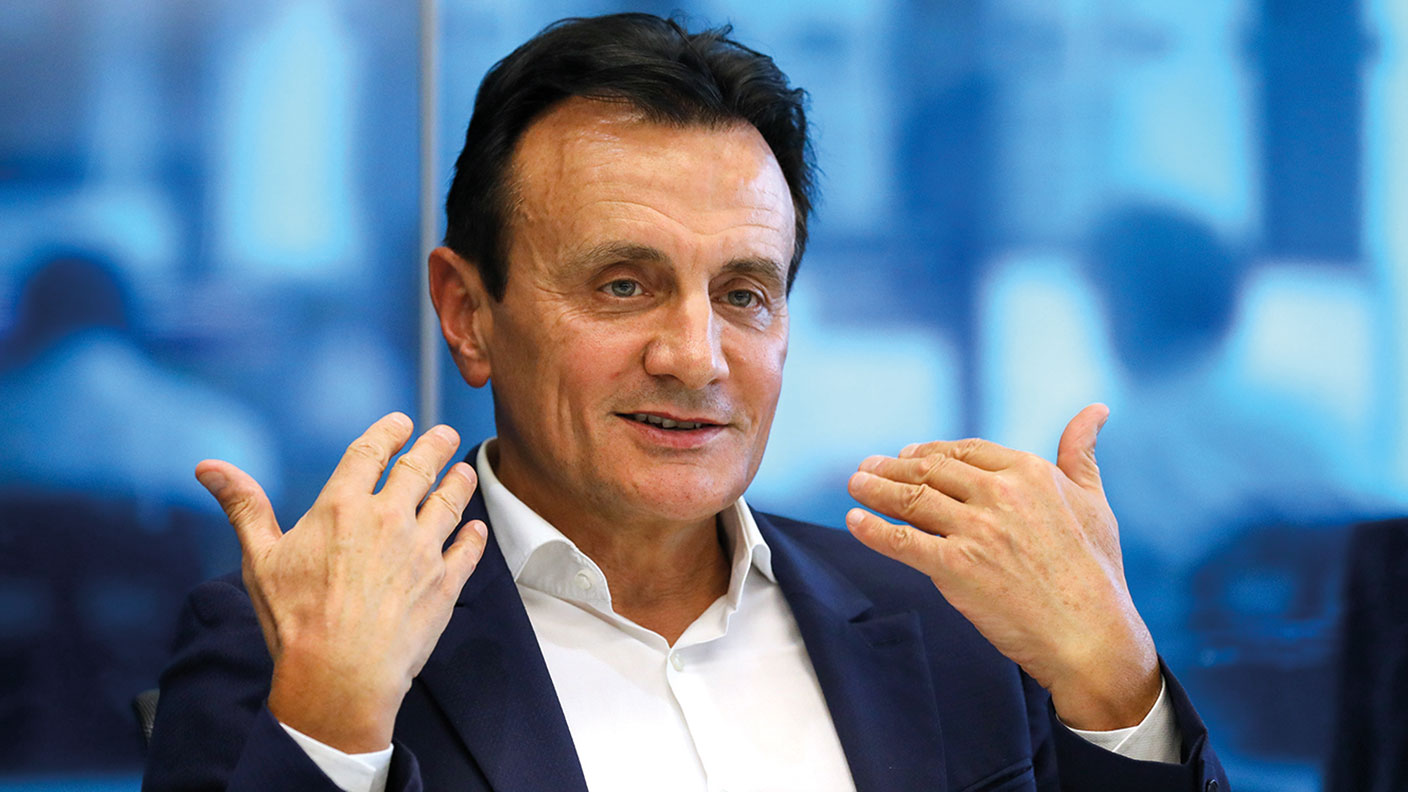AstraZeneca’s shareholders rebel over pay
Shareholders in AstraZeneca have rebelled over proposals to raise bonus levels for its bosses.


Get the latest financial news, insights and expert analysis from our award-winning MoneyWeek team, to help you understand what really matters when it comes to your finances.
You are now subscribed
Your newsletter sign-up was successful
Want to add more newsletters?

Twice daily
MoneyWeek
Get the latest financial news, insights and expert analysis from our award-winning MoneyWeek team, to help you understand what really matters when it comes to your finances.

Four times a week
Look After My Bills
Sign up to our free money-saving newsletter, filled with the latest news and expert advice to help you find the best tips and deals for managing your bills. Start saving today!
Drug giant AstraZeneca has suffered a “major shareholder rebellion” over proposals to raise bonus levels for its bosses, including CEO Pascal Soriot (pictured), says Julia Bradshaw in The Daily Telegraph. While the proposals were passed, over 40% of AstraZeneca’s investors voted against them.
Soriot’s possible earnings have now climbed from 650% of his salary to 900% in just two years. The reason the revolt went as far as it did was due to opposition from Institutional Shareholder Services (ISS), which advises 4,000 clients on how they should vote, says Oliver Shah in the Sunday Times. However, while the likes of ISS can be useful in fighting “egregious bonuses”, such as those at floundering Cineworld, their “box-ticking” is unfair for Soriot, one of the few “world-class chief executives in the FTSE 100”. AstraZeneca’s share price has increased by 80% since he took over and it has developed a Covid-19 vaccine with Oxford, so“if anyone deserves a pay rise, it is Soriot”.
Soriot is a “talented chief” whose performance “actually lives up to the multimillion-pound billing” and his pay isn’t excessive compared with his contemporaries at Roche or Pfizer, says Helen Thomas in the Financial Times. Still, investors rightly worry that the dynamic in the AstraZeneca boardroom has “tipped” in favour of its “superstar boss”, who is now “being feted as the saviour of the UK’s health and economy”. The increased size and complexity that AstraZeneca is taking on with its $39bn takeover of Alexion, which shareholders also approved at the meeting, could prompt Soriot to demand even more money in future.
MoneyWeek
Subscribe to MoneyWeek today and get your first six magazine issues absolutely FREE

Sign up to Money Morning
Don't miss the latest investment and personal finances news, market analysis, plus money-saving tips with our free twice-daily newsletter
Don't miss the latest investment and personal finances news, market analysis, plus money-saving tips with our free twice-daily newsletter
Get the latest financial news, insights and expert analysis from our award-winning MoneyWeek team, to help you understand what really matters when it comes to your finances.

-
 How a ‘great view’ from your home can boost its value by 35%
How a ‘great view’ from your home can boost its value by 35%A house that comes with a picturesque backdrop could add tens of thousands of pounds to its asking price – but how does each region compare?
-
 What is a care fees annuity and how much does it cost?
What is a care fees annuity and how much does it cost?How we will be cared for in our later years – and how much we are willing to pay for it – are conversations best had as early as possible. One option to cover the cost is a care fees annuity. We look at the pros and cons.
-
 Three key winners from the AI boom and beyond
Three key winners from the AI boom and beyondJames Harries of the Trojan Global Income Fund picks three promising stocks that transcend the hype of the AI boom
-
 RTX Corporation is a strong player in a growth market
RTX Corporation is a strong player in a growth marketRTX Corporation’s order backlog means investors can look forward to years of rising profits
-
 Profit from MSCI – the backbone of finance
Profit from MSCI – the backbone of financeAs an index provider, MSCI is a key part of the global financial system. Its shares look cheap
-
 'AI is the real deal – it will change our world in more ways than we can imagine'
'AI is the real deal – it will change our world in more ways than we can imagine'Interview Rob Arnott of Research Affiliates talks to Andrew Van Sickle about the AI bubble, the impact of tariffs on inflation and the outlook for gold and China
-
 Should investors join the rush for venture-capital trusts?
Should investors join the rush for venture-capital trusts?Opinion Investors hoping to buy into venture-capital trusts before the end of the tax year may need to move quickly, says David Prosser
-
 Food and drinks giants seek an image makeover – here's what they're doing
Food and drinks giants seek an image makeover – here's what they're doingThe global food and drink industry is having to change pace to retain its famous appeal for defensive investors. Who will be the winners?
-
 Barings Emerging Europe trust bounces back from Russia woes
Barings Emerging Europe trust bounces back from Russia woesBarings Emerging Europe trust has added the Middle East and Africa to its mandate, delivering a strong recovery, says Max King
-
 How a dovish Federal Reserve could affect you
How a dovish Federal Reserve could affect youTrump’s pick for the US Federal Reserve is not so much of a yes-man as his rival, but interest rates will still come down quickly, says Cris Sholto Heaton